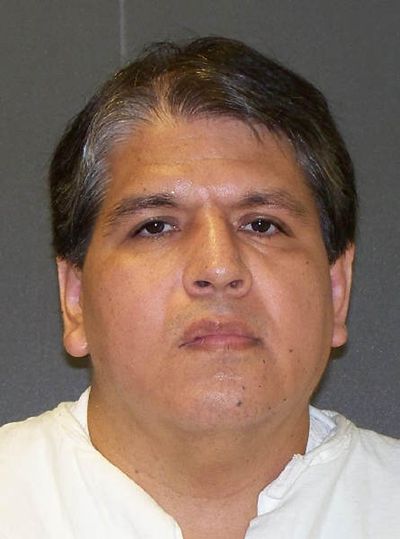Mexican citizen facing execution in Texas for killing cousin

HUNTSVILLE, Texas – Attorneys for a Mexican citizen on death row in Texas for the abduction and slaying of his 16-year-old cousin more than two decades ago looked to the federal courts in a last-day attempt to halt his execution.
Ruben Ramirez Cardenas was scheduled for lethal injection Wednesday evening for the February 1997 killing of Mayra Laguna in the Rio Grande Valley in far South Texas.
The high school student was snatched from a bedroom she shared with a younger sister at her family’s public housing apartment in McAllen and her body was found later in a canal near a lake. In a confession to police, Cardenas said he and a friend drove around with Laguna in his mother’s car, that he had sex with the girl and then fatally beat her as she fought him after he unbound her arms to let her go.
Cardenas, 47, would be the seventh inmate executed this year in Texas, which carries out capital punishment more than any other state.
“I didn’t plan on doing this, but I was high on cocaine,” he told authorities.
He said after he hit her in the neck, she began coughing up blood and having breathing difficulties. After trying unsuccessfully to revive her, he said he tied her up “and rolled her down a canal bank.”
This week, the Texas Court of Criminal Appeals, the state’s highest criminal court, rejected an appeal from Cardenas’ lawyers that sought new DNA testing on evidence in the case. His attorneys argued the new testing would be better than the now-obsolete testing that left “persistent doubts about his guilt and the integrity of his conviction.”
“We will be filing multiple appeals in federal court,” Cardenas’ attorney, Maurie Levin, said Tuesday.
The state courts also rejected arguments that eyewitness testimony against Cardenas was shaky, that little physical evidence tied him to the teen’s killing and that his confession was obtained after hours of isolation and intense police questioning.
“All hallmarks of wrongful convictions,” Levin said. “To permit his execution to proceed when there is potentially exculpatory DNA testing available violates the most basic notions of fairness and justice.”
She also contended that authorities acted improperly when not telling the Mexican-born Cardenas that he could get legal help from the Mexican consulate.
Hidalgo County prosecutors argued the DNA request was intended to delay the punishment and “muddy the waters.” Prosecutors also pointed out in court filings that Cardenas led them to the scene of the killing, providing information not publicly disclosed.
Rene Guerra, the former Hidalgo County district attorney who prosecuted Cardenas, said Tuesday that he “wouldn’t be able to live with myself” if he believed the conviction was improper.
“I never would have authorized a case that was not there or was a flimsy investigation,” he said. “This guy deserves the death penalty.”
Laguna’s younger sister, Roxanna Laguna, told authorities she awoke in pre-dawn darkness Feb. 22, 1997, to see an intruder in their bedroom. She said Mayra’s mouth was taped and her hands were bound, and that the man went out a window with her.
A woman in the same Hidalgo County public housing complex called police after seeing a man walking with a barefoot girl who was wearing only a shirt and underwear.
Cardenas initially was questioned about the teen’s disappearance because he was a close family member who had socialized with her.
Being born in Mexico, which does not have capital punishment, made Cardenas eligible for legal help from the Mexican consulate when he was arrested, according to provisions of the Vienna Convention of Consular Relations, which is a 1963 international agreement. The courts have allowed executions to move forward in several previous Texas death row cases in which the agreement was said to have been violated.
In a statement Monday, the Foreign Relations Department said Mexico “will maintain until the last minute its efforts to achieve a moratorium or suspension of this penalty” for Cardenas.
A friend in the car with Cardenas, Jose Antonio Lopez Castillo, now 45, was convicted of aggravated kidnapping and is serving a 25-year prison term.